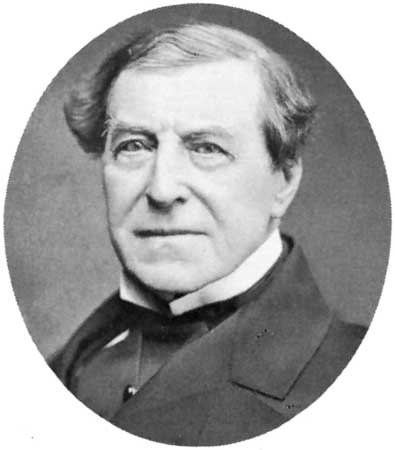Chelmsford, Frederic John Napier Thesiger, 1st Viscount, Baron Chelmsford Of Chelmsford
British statesman
born August 12, 1868, London, England
died April 1, 1933, London
 English colonial administrator and statesman who served for several years as governor of Queensland and New South Wales before becoming viceroy of India; he helped to institute reforms increasing Indian representation in government but provoked opposition by his severe measures against nationalists.
English colonial administrator and statesman who served for several years as governor of Queensland and New South Wales before becoming viceroy of India; he helped to institute reforms increasing Indian representation in government but provoked opposition by his severe measures against nationalists.The eldest son of the second Baron Chelmsford and on his mother's side a grandson of Major General Heath of the Bombay army, he was educated at Magdalen College, Oxford University, where he led the cricket team in 1890. He later served on both the London school board and county council. In 1905 he succeeded his father as Baron Chelmsford and was appointed governor of the state of Queensland. In 1909 he became governor of New South Wales, where he was active and popular despite political conflict and labour unrest.
Knighted in 1912, he left Australia the next year to serve in India as a captain in the Dorsetshire regiment. During the early part of World War I he received quick promotions, to the surprise of many, and was viceroy in 1916–21, in a time of surging Indian nationalism. As a result of the Montagu–Chelmsford reforms, based on the joint report of the secretary of state for India, Edwin Samuel Montagu, and of Chelmsford himself, the central and provincial legislatures were increased in size and given elected majorities. Dyarchy was introduced in the provinces, with certain departments of government transferred to the control of ministers who were responsible to the legislature, while others were responsible to the governor. The number of Indians on the viceroy's executive council of seven was increased from one to three.
Implemented in 1919, the reforms were preceded by serious riots in Gujarāt and the Punjab. Chelmsford thus sought to enforce the Rowlatt Acts (1919), designed to give certain emergency powers to the executive, such as the internment of persons accused of subversion, but he met strong Indian opposition. Widespread disturbances led to imposition of martial law in the Punjab and questioning of Chelmsford's competence. Mahatma Gandhi's non-cooperation campaigns led the Congress Party in 1920 to boycott the first elections to the reformed councils.
On his retirement in 1921 Chelmsford was created a viscount and in 1924 became first lord of the Admiralty in Ramsay MacDonald's Labour government. During his last years he was chairman of the Miner's Welfare Committee and active in education projects, collecting many honours.
- Montalvo, Juan
- Montana
- Montana, flag of
- Montana, Joe
- Montana State University
- Montana, University of
- Montand, Yves
- Montanism
- Montanus
- Montauban
- Montauk
- Montausier, Charles de Saint-Maure, duc de
- Mont-aux-Sources
- Montañés, Juan Martínez
- Mont Blanc
- Mont Blanc Tunnel
- Montbéliard
- Montcalm, Louis-Joseph de Montcalm-Grozon, marquis de
- Montclair
- Montclair State University
- Mont-de-Marsan
- Montdory
- Monte Albán
- Monte Bello Islands
- montebrasite